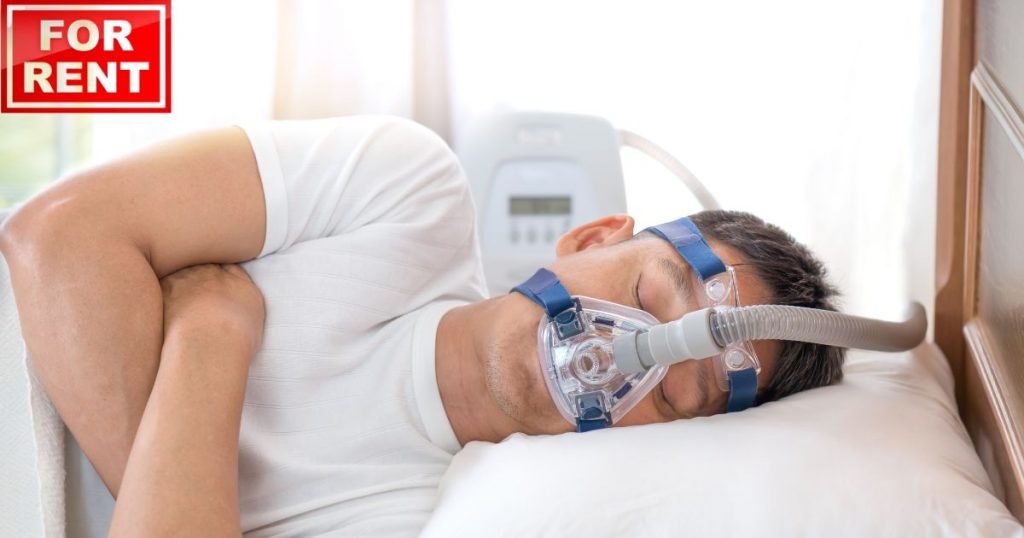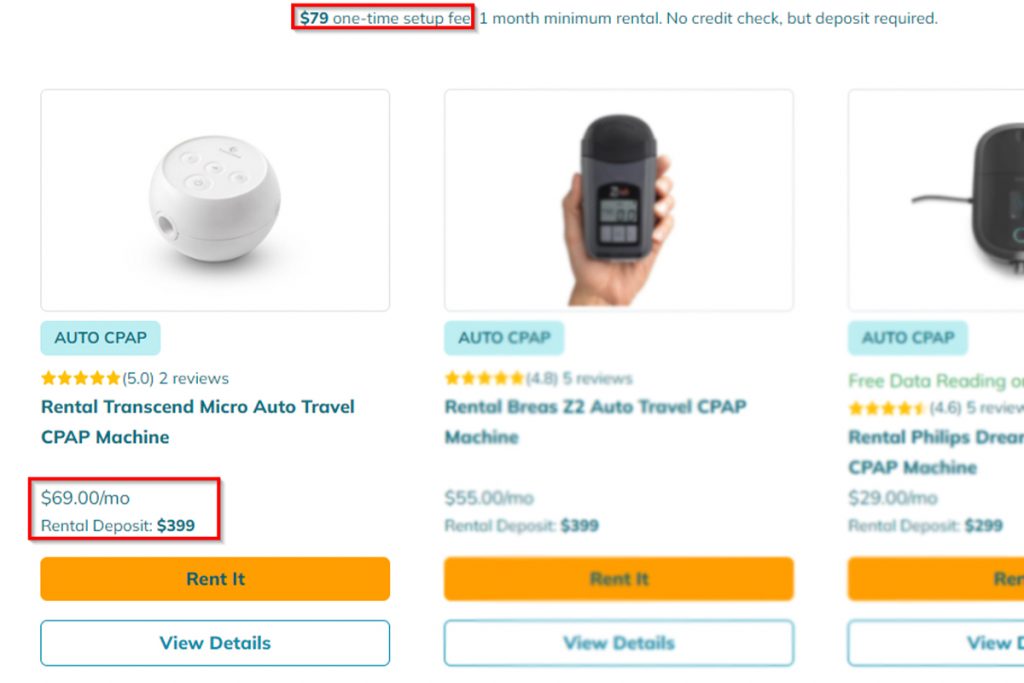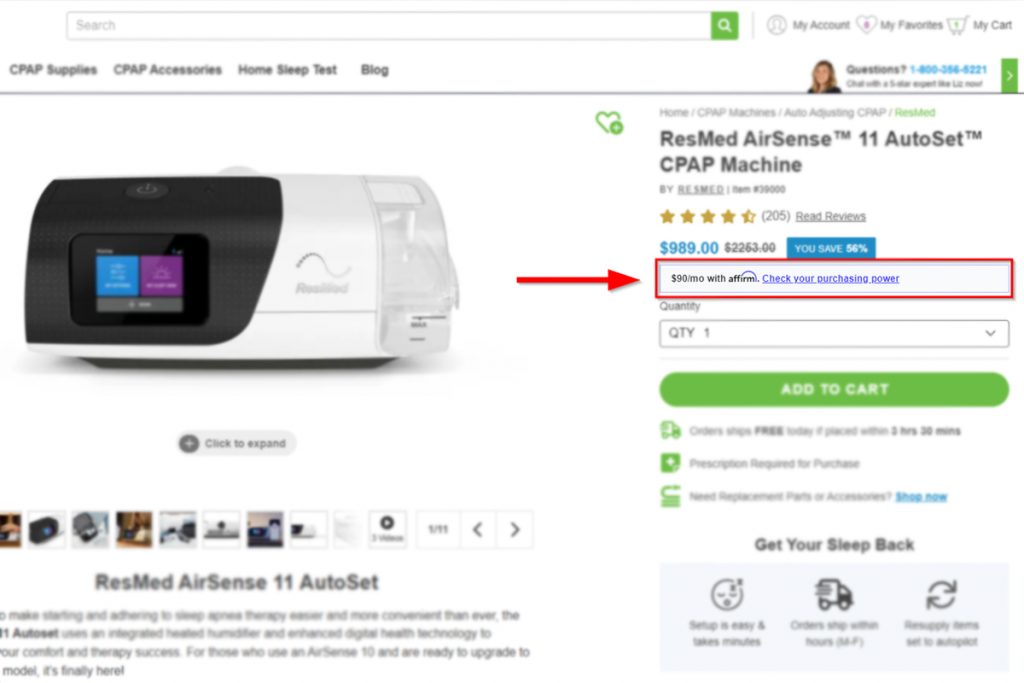
💡 Key Takeaways
- Renting vs. Buying CPAP Machines: Renting a CPAP machine is cheaper upfront with the opportunity to try different models, but buying outright is generally less expensive over time and offers more control and flexibility.
- Types of CPAP Rentals: There are various rental options, including private rent-to-own, rent-to-own with insurance, long-term, and short-term rentals, each with its own terms and costs.
- Insurance and CPAP Rentals: Insurance policies, such as Medicare and Medicaid, may cover a portion of CPAP rental costs, but non-compliance can lead to loss of coverage, making outright purchase a more secure option.
- Cost Comparison: The long-term cost of renting a CPAP machine, including deposits and monthly fees, often exceeds the one-time purchase price of a new machine.
- Alternatives and Financial Assistance: For those unable to afford the full cost of a CPAP machine, alternatives include financing programs, purchasing refurbished machines, or using FSA/HSA accounts for payment.
Treating your sleep apnea with CPAP therapy can be life-changing, but it’s no secret that it can also cost a lot of money. If you’re concerned about the out-of-pocket costs, you may be thinking about renting a CPAP machine.
But should you lease a CPAP? And will it actually save you money?
Today, we’ll go over everything you need to know about CPAP rentals, including:
- Can You Rent a CPAP Machine?
- When Renting Versus Buying Is Right for You
- Types of CPAP Rentals
- Benefit of Renting Versus Benefits of Buying
- Why Buying Is Less Expensive Than Renting
- Alternatives to CPAP Rentals
Can You Rent a CPAP Machine?
Renting a CPAP machine is a lot more common than you may think! There are several types of rentals, depending on how long you want to use your rented CPAP and whether you want to own the equipment eventually.
Lease agreements can last a few weeks, months, or even years. Renting a CPAP machine is often cheaper upfront, especially if you have health insurance.
However, most rentals cost more over time than it costs to buy your CPAP machine outright.
Should You Rent a CPAP Machine?
There are a lot of factors that play into whether or not renting a CPAP machine is right for you. For the most part, CPAP rentals, even the rent-to-own contracts, are more expensive in the long run.
However, there are some situations where CPAP rental programs may be a good option, especially if you want to try out several different machines or have an insurance policy requiring you to rent-to-own your CPAP machine.
| Renting a CPAP May Be Right for You If: | Buying a CPAP Machine May Be Better If: |
|---|---|
| Your Health Insurance Offers a Rental Program | You Don’t Have a Rental Program Through Insurance |
| You Cannot Afford to Pay for a CPAP Machine Outright | You Can Afford to Purchase a CPAP Machine Outright |
| You Want to Try Different Types of CPAP Machines Before Buying One | You Know Exactly What Kind of CPAP Machine You Want and Plan to Stick With It |
| You Aren’t Sure If You’ll Remain CPAP Compliant Long-Term | You Are Able to Use Your CPAP Machine Regularly |
| You Already Own a CPAP Machine But Want to Rent a Travel Machine | You Travel Regularly and Would Need to Rent a Travel Machine Several Times a Year |
Types of CPAP Rentals
There are four categories of CPAP machine rentals that you may be wondering about:
- Private Rent-to-Own
- Rent-to-Own With Insurance
- Long-Term Rentals
- Short-Term Rentals
Private Rent-to-Own CPAP Machines
Rent-to-own programs allow you to rent your CPAP machine for a certain period before taking full ownership of the device.
Some rent-to-own CPAP suppliers will let you choose your rental period. Others may have you rent for a set number of months.
These programs are beneficial for cutting the upfront cost of purchasing a CPAP machine but will most likely cost you more money in the long run.
Finding a website that offers a rent-to-own program without insurance may be challenging. However, some local brick-and-mortar CPAP stores may offer this option.
Rent-to-Own Your CPAP With Insurance
Health insurance programs, such as Medicare and Medicaid, often have you purchase your CPAP machine through a rent-to-own program.
During this time, your health insurance pays its portion of each monthly payment while you pay the rest. Medicare and Medicaid usually pay 80% of the total cost, leaving you with just 20%.
These agreements usually last about thirteen months, including an initial three-month trial period. This program allows your insurance company to track whether or not you can remain CPAP-compliant.
If you fail to use your CPAP regularly, your insurance may refuse to continue covering their part of the rental. If this happens, you could be asked to take over the full payments or return your machine.
Long-Term CPAP Rentals
A long-term CPAP lease can last anywhere from a few months to years. Each supplier has their own policies and payment options.
You will most likely need to pay a deposit, and there will usually be a minimal rental period. This period is usually around three months, but this can vary.
If you don’t have health insurance and are struggling to pay for the total cost of your CPAP machine upfront, a long-term rental may be a good choice.
If you’re new to CPAP therapy and aren’t sure which device to choose, renting a CPAP machine for a few months can be a great way to try certain models until you find the right one.
Keep in mind long-term rentals usually cost more over time. Between extra fees and increased total pricing, renting a CPAP machine can cost hundreds more than buying it outright.
Short-Term CPAP Rentals
Finding a CPAP machine for a short-term rental can be more difficult than a long-term one, but these programs do exist. Usually, you are charged on a weekly or monthly basis.
Like long-term agreements, short-term leases usually require paying to use the machine for a set amount of time. This is called a minimum rental period, which applies even if you don’t keep the machine for the full time.
Short-term rentals often cost more than long-term rentals. However, the minimal rental period is shorter. Some companies let you rent on a week-by-week basis.
Short-term rentals are a good option if you suddenly find yourself without your CPAP machine due to wear and tear, equipment recalls, or some other unforeseeable circumstance.
Some people prefer to use a short-term rental while traveling to avoid having to bring their own CPAP machine with them.
Renting Versus Buying a CPAP Machine
Buying your CPAP machine offers many benefits that you don’t get with rentals. Still, some people prefer leasing their CPAP machine because it costs less money upfront.
| Benefits of Buying a CPAP Machine | Benefits of Renting a CPAP Machine |
|---|---|
| Lower Total Cost Over Time | Lower Upfront Costs |
| Insurance Can’t Take Away Your Machine for Non-Compliance | You Can Try Different Machines to Find One You Like |
| Buying a CPAP Machine Is a Simpler Process | You Can Make Sure You Will Actually Use Your CPAP Machine Before Buying One |
| No Need to Worry About Losing Your Rental Deposit | If Your Machine Breaks Down You Can Rent a New One |
| More Models to Choose From | Stop Payments at Any Time If the Cost Is too Much |
How Much Does it Cost to Rent a CPAP Machine Verus Buy?
The month-to-month cost of a CPAP rental is usually between $30 and $120, not including taxes and fees.
Most CPAP rentals will require you to put down a deposit in case the machine is returned with damage. These deposits can cost up to $300-400 upfront.
Most standard CPAP machines are designed to last up to five years. Travel machines typically last three years.

If you were to rent the Transcend Micro Travel CPAP for $69 per month, that would come out to just under $2,500 over 36 months. Once you factor in the deposit, you’re looking at spending nearly $3,000 out of pocket.
In comparison, the Transcend Micro Travel CPAP Machine is available on our website for just $860 at the time of publishing this article but can range to a little over $1,000.
Unless you have a great health insurance policy, buying your CPAP machine outright is almost always cheaper than renting over time, even if it does cost more money upfront. Plus, it’s yours to do with as you please as soon as you receive it!
Alternatives to Renting a CPAP Machine
If you can’t afford to pay the full cost of your CPAP machine but don’t want to spend a ton of money on CPAP rentals, you still have options!
- See If You Qualify for Our Breathe Now, Pay Later Program Through Affirm Financing*
- Purchase a Refurbished CPAP from a Certified Refurbish Shop
- Use an FSA or HSA to Help Pay for Your Machine
- Use a Medical Loan or Credit Card to Pay for Your CPAP
*Affirm payment plans are subject to approval following a quick credit check. This is a soft query that will not impact your credit score.

Frequently Asked Questions
Can You Use an FSA or HSA to Rent a CPAP Machine?
FSA or HSA accounts can be used to buy or rent any necessary medical equipment, including a CPAP machine or other supplies. Some people use an FSA or HSA to purchase their CPAP machines outright since it costs less than renting over the life of the machine.
Can You Rent a CPAP Machine on Vacation?
If you are interested in renting a travel machine for vacation, we suggest renting the machine before you leave for your destination so that it has plenty of time to arrive ahead of your departure. Some cities have brick-and-mortar CPAP rental stores, but these aren’t guaranteed, and stock may run low once you get there.
Can You Borrow a CPAP Machine Instead of Renting One?
It is never a good idea to borrow a CPAP from anyone, even if you know them. Each CPAP machine is set to a specific pressure setting based on your individual treatment needs. These settings can only be adjusted by a specialist. Borrowing a used CPAP machine also puts you at risk of sharing germs.
Final Thoughts
When deciding whether to rent or buy your CPAP equipment, consider your insurance coverage, ability to pay upfront costs, and desire for control and flexibility over your therapy. Renting can help cut down on the initial cost of CPAP therapy, but eventually, it can become more costly over time.
Take time to think through both options to determine what fits best with your needs and situation!



